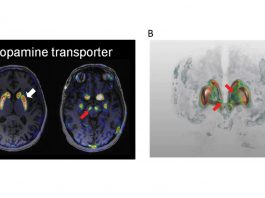LifeArc, the MRC and the BBSRC have announced funding for an £18m network of gene therapy hubs to advance promising research into new treatments for patients.
Academics in the UK have traditionally found it difficult to gain access to the clinical materials, facilities, and expertise required to progress gene therapy research into clinical trials. However, LifeArc and the Medical Research Council (MRC), with support from the Biotechnology and Biological Sciences Research Council (BBSRC), have recently announced three major investments totalling £18m to create a national network of cutting-edge ‘Gene Therapy Innovation Hubs’. The £18m funding will support the creation of three dedicated facilities to advance the clinical development of new genetic treatments, with potential to transform care for millions of patients including those with rare and life-threatening genetic diseases. Hubs will be at King’s College London, NHS Blood and Transplant in Bristol and the University of Sheffield.
Speaking to Innovation News Network‘s Editor, Clifford Holt, Dr Melanie Lee, CEO of LifeArc, said: “As an independent medical charity, LifeArc is able to support the development of gene therapies for rare disease through grants it makes via its Philanthropic Fund to academic groups. We have found that our grantees have struggled to move their innovation out of the lab and into clinical trials because material for clinical trials needs to be manufactured to a very high standard – known as ‘GMP’ (Good Manufacturing Practice) – set out by the regulators. There are a limited number of sites in the world capable of making this material and because academics doing a phase I or phase II trial are often not looking for large amounts of product, the commercial sites will routinely prioritise the more lucrative, larger commercial scale batch manufacture. Consequently, academic researchers developing gene therapies, often funded by grants from charities or research councils, struggle to get the material they need. When they do, it is expensive and they often find themselves bumped to the back of the queue if a bigger more lucrative contract comes along.
“We have also seen first-hand the impact on projects caused by a lack of knowledge and support around routes to translate early research through our work with research charities and academics. This gap in the translational pathway results in delay, increased costs, and a loss of knowledge and skills needed to grow and sustain this sector. It is also hampering the entry of new gene therapies into clinical application.”
The new Innovation Hubs will thus provide academics across the UK with access to the skills, materials, and manufacturing capacity they need, within a reliable timescale and cost, which will accelerate patient access to therapeutic solutions for rare and life-threatening diseases.
The announcement of £18m to create a network of gene therapy hubs is clearly of importance, and for the future pipeline of gene therapies in the UK. According to Lee, they will mean that “researchers will be able to access the facilities they need to move their innovative technology forwards, de-risking it for onward development. The network is designed to be a one-stop-shop for researchers to access all the support and manufacturing they need to help them deliver the early stage trials for novel gene therapies.”

The Coordination Committee
The creation and ongoing operation of the Hub network will be overseen by a cross-network Coordination Committee to promote sharing of knowledge and capabilities, engage with the academic community and foster interactions with commercial organisations to facilitate the onward the development of new genetic medicines. Lee explained: “The Coordination Committee will have representatives from each of the hubs, the funders, and independent representatives from the community, along with an independent Chair. The Committee will oversee and be responsible for the smooth running of the network. The Committee will also have a number of sub-committees that will look at specific issues that impact all the hubs, such as process development and skills and training.
Collaborative working
The MRC, BBSRC, and LifeArc will thus be working closely together moving forwards, and, as Lee highlighted, this is both nothing new and also something that is mutually beneficial. She said: “LifeArc has always worked collaboratively with other funders. LifeArc and MRC identified that we were both experiencing the same challenges as funders of gene therapy translational research. It was clear that by working together we could achieve more than either of us could achieve on our own. While each funder works in slightly different ways, we have the same goal of progressing academic research along the translational path to patients. We also hope that the critical mass that we are building will enable other funders to build on the elements (e.g. the process development work BBSRC is funding) that synergise with the aims of LifeArc.”
Stem cells and clinical trials
A focus will be placed on ex vivo gene therapy and stem cell research moving forwards as both ex vivo gene therapy and gene/cell therapies use viral vectors which could be manufactured at the hubs. “The hubs will, in the first instance, be manufacturing AAV and Lentiviral vectors,” Lee said.
Some 127 clinical trials are currently taking place in the UK to test new cell and gene therapy medicines, which represent 12% of the global total, and the new hubs will address the early stage clinical trials. Lee went on: “It is hoped that this will enable more academic projects to move into the clinical space and thereby increase the pipeline of trials in the UK moving on to larger commercial trials.”
The network and the future
The teams from each of the hubs have already held several positive meetings where shared objectives have been identified. In addition, site visits have been planned between the hubs to share knowledge and learning from the more established ones to help with the set ups of the others. “We hope to build on this early collaborative will to ensure that the hub network is greater than the sum of its parts,” Lee concluded.
Dr Melanie Lee
CEO
LifeArc
Tweet @lifearc1
www.lifearc.org
Please note, this article will also appear in the sixth edition of our quarterly publication.









